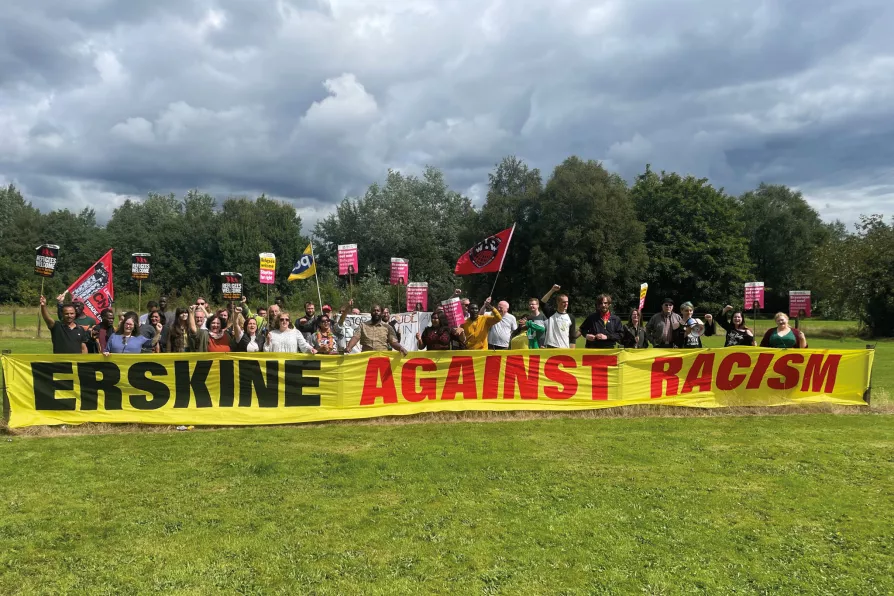The US-Israeli strikes against Iran are part of a decades-long war against the Islamic Republic which has refused to bow to US demands that it surrender its sovereignty, argues VIJAY PRASHAD
Beyond the shouting: building lasting solidarity against the far right
Pushing back fascists requires more than weekend protests, argues MATT KERR, as he recounts lessons from a year-long campaign to defend refugees in Erskine and calls for sustained community engagement


LIKE hundreds of others, I found myself standing in Glasgow’s George Square last weekend for a rally against racism.
Loitering at the back, we struggled to hear or even see the speakers for much of the time, but soon heard a voice from behind on a loudhailer.
“I’m Alastair McConnachie …” he said, walking towards the rally with his grinning chum, holding aloft a placard reading “asylum frauds out.”
Similar stories

ROZ FOYER explains the significance and tradition of today’s St Andrew’s Day March and Rally

Ben Cowles previews his interview with Stand Up to Racism’s SABBY DHALU for the Morning Star’s new Youtube channel












